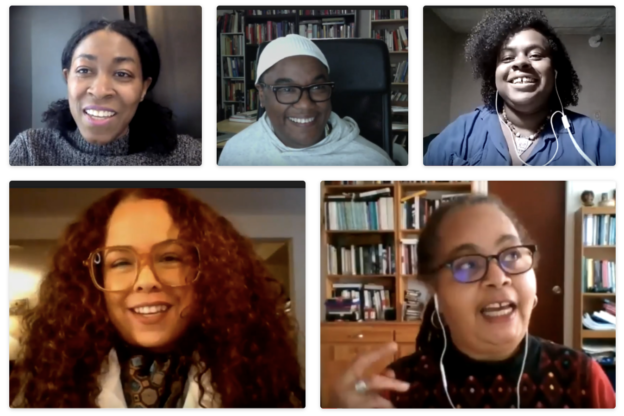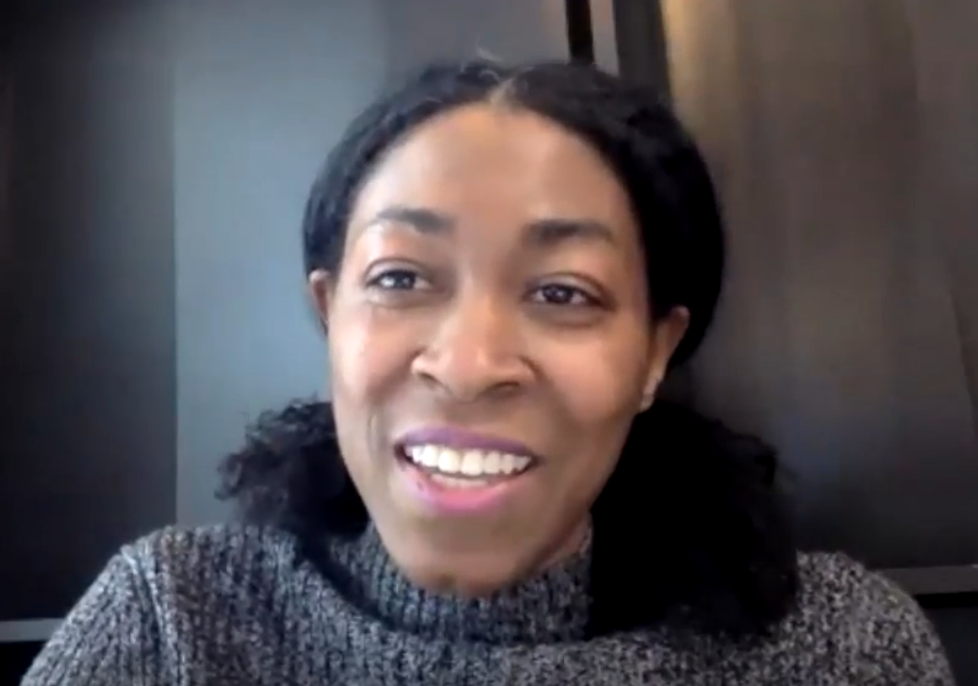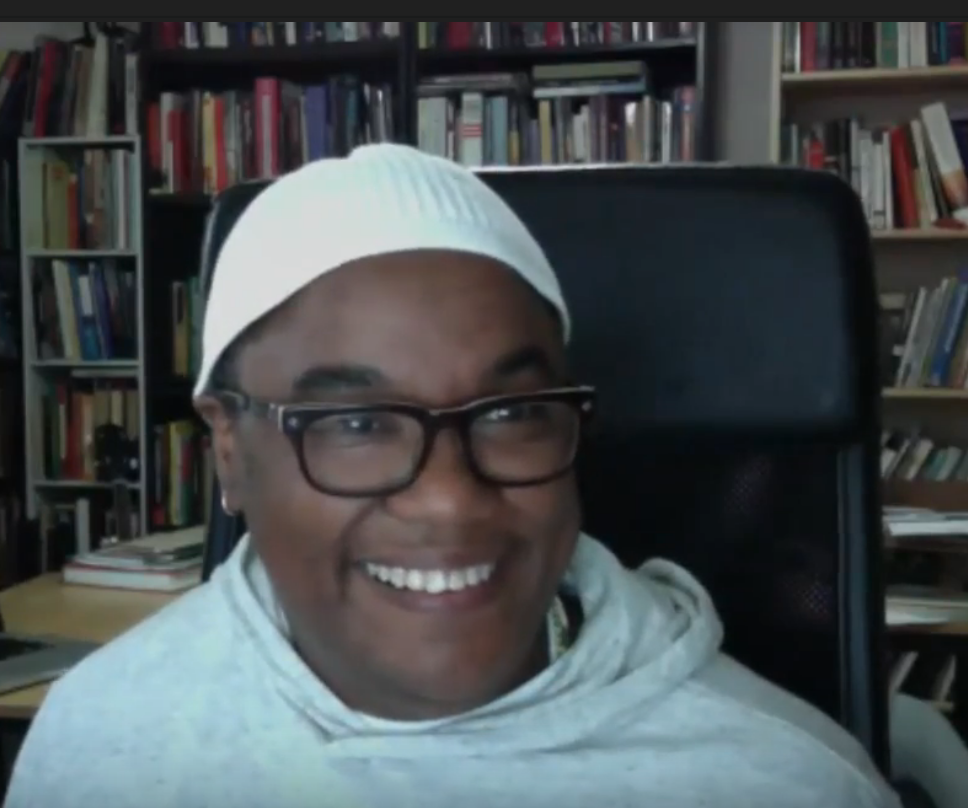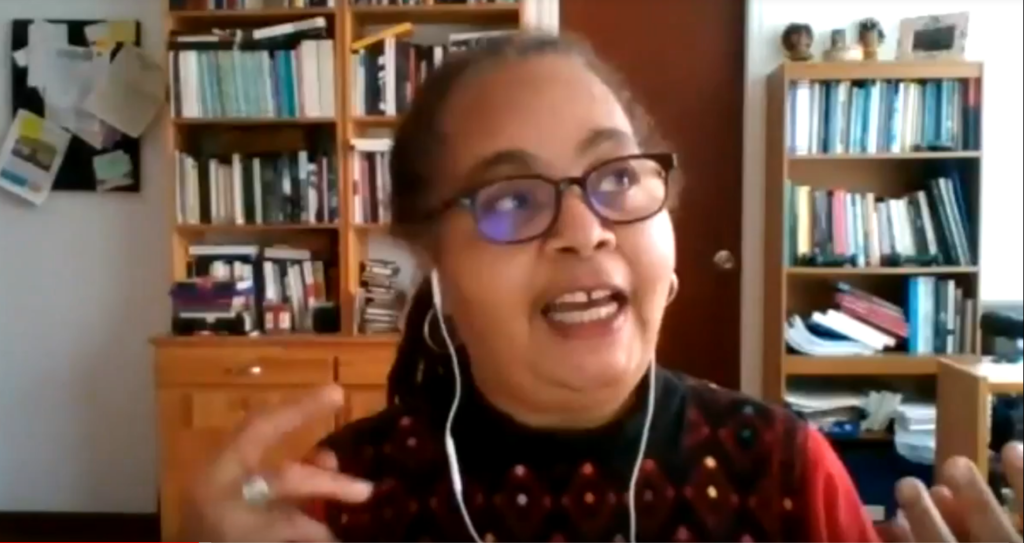This post is by Contributing Author Sarah Soanirina Ohmer. Sarah Soanirina Ohmer: polyglot, Black Feminist, womanist, literary critic focusing on trauma, healing, and spirituality, in French Spanish Portuguese and English, is an Assistant Professor of Latin American and Latino Studies, African American Studies, and Women and Gender Studies at Lehman College in the Bronx, NY.
On 02/27/2021, we listened to, as Lehman Masters in Liberal Studies student Chanta Palmer commented, “living references.” Racialized women from the Bronx, Gainesville via Baltimore, Minas Gerais Brazil, and Bogotá Colombia via the Dominican Republic. The discussion went from the self-identification and self-definition processes of a bisexual Afro-Latinx to the revolutionary acts of a fat black feminist in Brazil.
Prompted by Javiela Evangelista, panelists reflected on the gendered and colonial legacies of the Haitian Revolution, the ephemeral nature of non heteronormative, anti-racist, decolonial revolutions, the coloniality that permeates in queer studies in the Americas, the lingering imperialism in U.S. Black Queer studies. Racialized people fight for LGBTQ+ communities in Latin America, and black queer theory exists in Spanish and Portuguese. After the event, graduate student Pastor Crespo noted how intersectional perspectives (gender, sexuality, race, and class) are more in-depth and critical than queer (read: U.S. based) and cuir (i.e. White Latin American) or (white Latin American or US Black) feminist studies.
The panel featuring Ochy Curiel, Tanya Saunders, Grisel Acosta, and Juliana Costa – shook us. Our work is in the practice of political projects in the streets, in our communities, in our bodies and spirits, in our classrooms. No form of revolution occurs without a political project towards the liberation of multiply oppressed peoples. Period. And it doesn’t happen at work. Work is where you get paid. A paycheck is capital. There is a clear danger in meddling with revolutionary thought in theory, without any significant action, and in confusing activism with capital. Academic spaces are neoliberal spaces, Ochy Curiel made this point loud and clear, bringing up the tuition hikes occurring worldwide. Juliana Costa illustrated her points with references to Miriam Alves self-preservation in literature, her pseudonym Zula Gibi transgressed threats after she published lesbian-centered fiction in the early 1980s Sao Paulo, Brazil. Grisel Acosta demonstrated her/their political work in action via poetry and activism in the Latinx community. For Tanya Saunders, the work implies enacting and studying counterhegemonic epistemologies, and dialogue across borders, across languages.
One week later, another panel airs on “The Revolutionary Meaning of the George Floyd Uprising,” with a CLR James, Frantz Fanon, approach to U.S. Black Proletariat violent uprising in 2020 – this revolution is not televised, is ongoing, as is the state-mandated genocide of racialized peoples in the Americas. Are you in?
Learning from the 1960s from an intersectional perspective, us radical CUNY students, faculty, staff, and alums, we carry on. We don’t rely on “them,” their theories, their standards of success.
Who will fight for us? Who is dying out there?
It’s not them, it’s us.
We fight, read, walk, support, dream-make our radical futures.
I close with Audre Lorde’s opening statement in “Learning from the 1960s, her address at the 1982 Harvard University Malcolm X Celebration: “I stand here now – Black, Lesbian, Feminist – an inheritor of Malcolm and in his tradition, doing my work, and the ghost of his voice through my mouth asks each one of you here tonight: Are you doing yours?”
Images provided by Contributing Author Sarah Soanirina Ohmer.
Sarah Soanirina Ohmer: polyglot, Black Feminist, womanist, literary critic focusing on trauma, healing, and spirituality, in French Spanish Portuguese and English, is an Assistant Professor of Latin American and Latino Studies, African American Studies, and Women and Gender Studies at Lehman College in the Bronx, NY.







